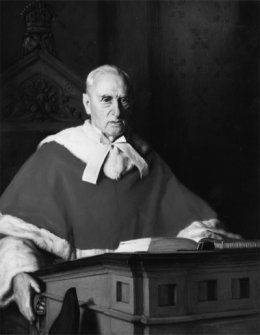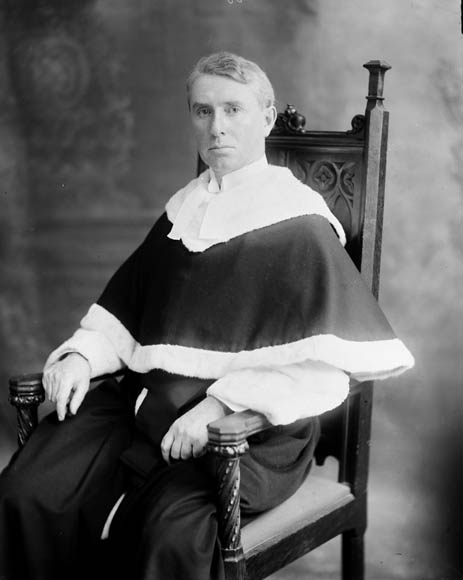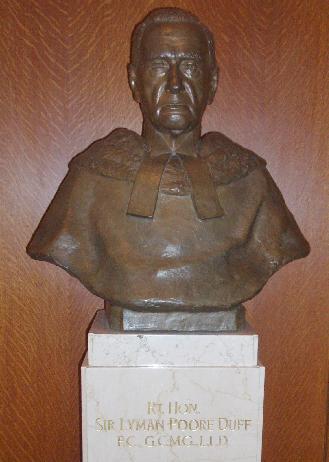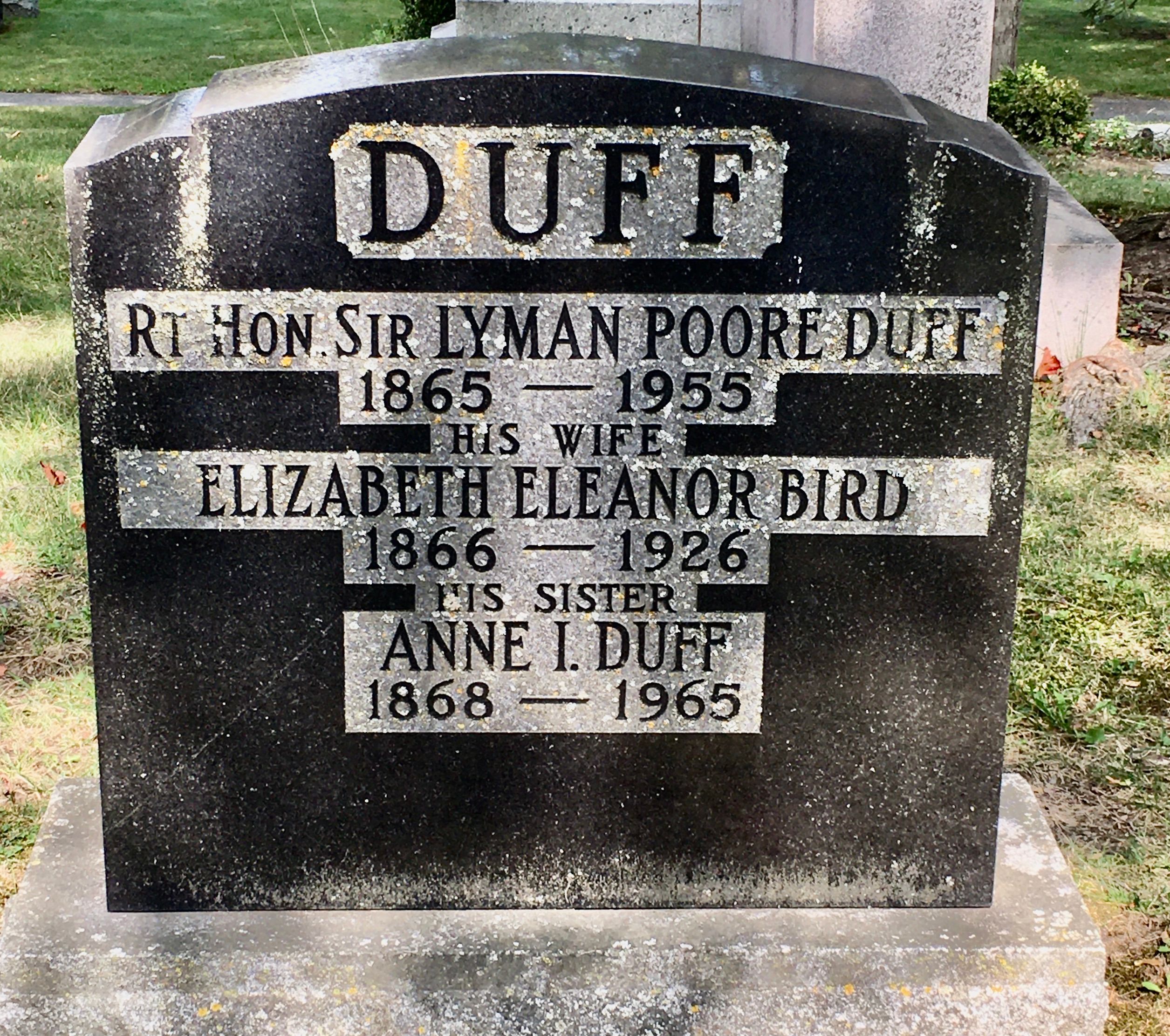
Rt. Honourable Sir Lyman Poore Duff: A Legacy of Legal Excellence and Judicial Innovation
Section 50, Lot 49 NW (L & NHP)
Early Life and Education Born in Meaford, Ontario, in 1865, Sir Lyman Poore Duff demonstrated early academic promise, which led him to pursue higher education. He attended the University of Toronto, where he earned his Bachelor of Arts degree in 1887. Following his graduation, Duff furthered his studies in law, eventually moving to Victoria, British Columbia, to establish his legal career.
Legal Career In Victoria, Duff quickly gained a reputation as a skilled and astute lawyer. His legal acumen and dedication to the profession saw him rise through the ranks, and in 1906, he was appointed to the Supreme Court of Canada. His appointment marked the beginning of a distinguished judicial career.

Judicial Contributions Duff's tenure on the Supreme Court was marked by significant contributions to Canadian jurisprudence, particularly in the area of constitutional law. His decisions have had a lasting impact, solidifying his legacy as one of Canada's foremost legal minds. In 1933, Duff was appointed Chief Justice of Canada, a position he held until 1944. During his time as Chief Justice, he was known for his deep understanding of the law and his ability to navigate complex legal issues.
Key Achievements One of Duff's most notable achievements was his pioneering role in establishing an Indigenous court system in Canada. This initiative was driven by his recognition of the unique legal needs and cultural contexts of Indigenous peoples, who had long faced systemic barriers within the mainstream judicial system.
Establishment of the Indigenous Court System Before Duff's intervention, Indigenous peoples in Canada often found themselves at a disadvantage in the legal system, which was predominantly shaped by Euro-Canadian legal principles and practices. Recognizing this disparity, Duff advocated for a court system that would be more culturally sensitive and accessible to Indigenous communities.
Objectives and Implementation The primary objective of the Indigenous court system was to provide a forum where Indigenous legal traditions and perspectives could be respected and integrated into the judicial process. This system aimed to offer a more culturally relevant approach to justice, acknowledging the distinct legal traditions that had governed Indigenous societies for centuries.
Duff's vision included the incorporation of Indigenous legal principles and practices into the adjudication process, ensuring that Indigenous defendants and litigants could have their cases heard in a manner that was consistent with their cultural values and norms. This approach not only aimed to enhance the fairness and relevance of the legal proceedings but also sought to empower Indigenous communities by recognizing and validating their legal traditions.
Impact and Legacy The establishment of the Indigenous court system marked a significant step towards addressing the historical injustices faced by Indigenous peoples within the Canadian legal framework. It represented an acknowledgment of the importance of cultural diversity and the need for a more inclusive approach to justice. Duff's initiative laid the groundwork for further developments in Indigenous legal rights and self-governance. His efforts helped pave the way for later reforms and the establishment of specialized courts and legal programs dedicated to Indigenous issues. The principles he championed continue to influence contemporary discussions about Indigenous justice and reconciliation in Canada.
Broader Influence Duff's work in this area has been recognized as a foundational contribution to the ongoing process of reconciling Indigenous and non-Indigenous legal systems in Canada. By advocating for a judiciary that respects and integrates Indigenous perspectives, Duff helped to foster a more equitable and just society.
His legacy in this regard is reflected in the continued efforts to develop and implement legal frameworks that respect Indigenous sovereignty and self-determination. The indigenous court system remains a testament to Duff's vision of a legal system that serves all Canadians, honoring the diversity and richness of the nation's cultural heritage.

In 1940, Duff made a landmark decision that upheld the Canadian government's power to abolish appeals to the Privy Council in London. This decision was pivotal in allowing Canada to adjudicate its affairs independently, strengthening the country's judicial sovereignty.
Later Years and Legacy After retiring from the Supreme Court in 1944, Duff continued to be a respected figure in the legal community until his passing in 1955.

His contributions to Canadian law and his efforts to create a more inclusive judicial system have left an indelible mark on the nation's legal landscape. Sir Lyman Poore Duff's legacy endures through the precedents he set and the principles he championed during his remarkable career.

